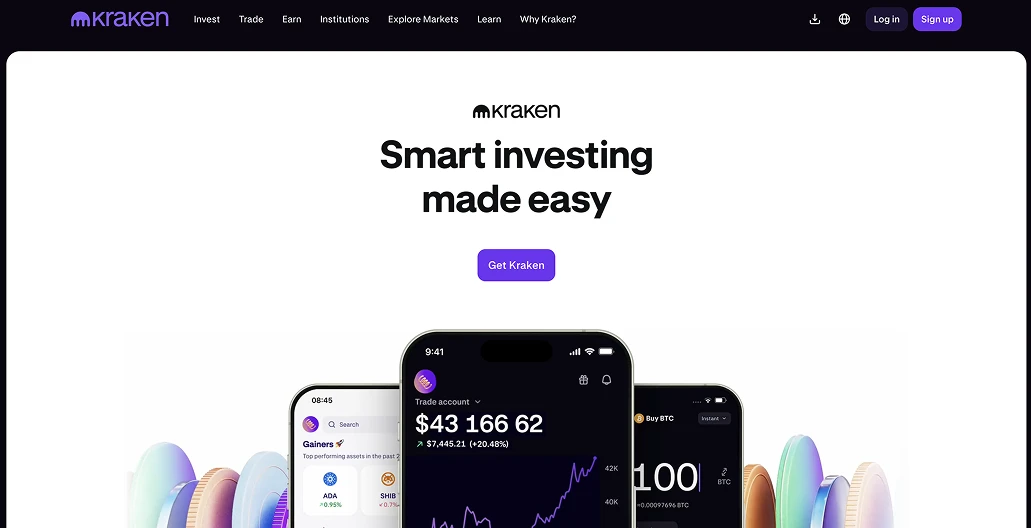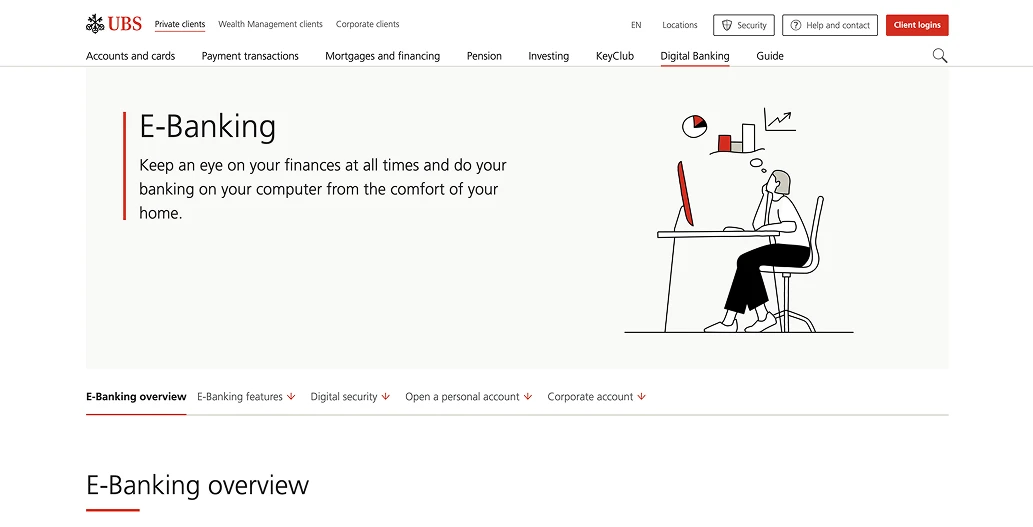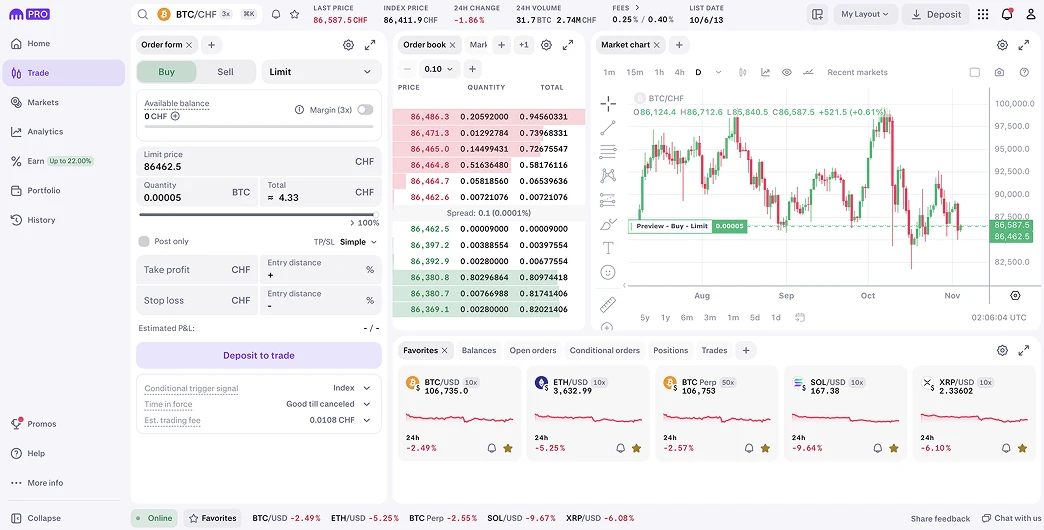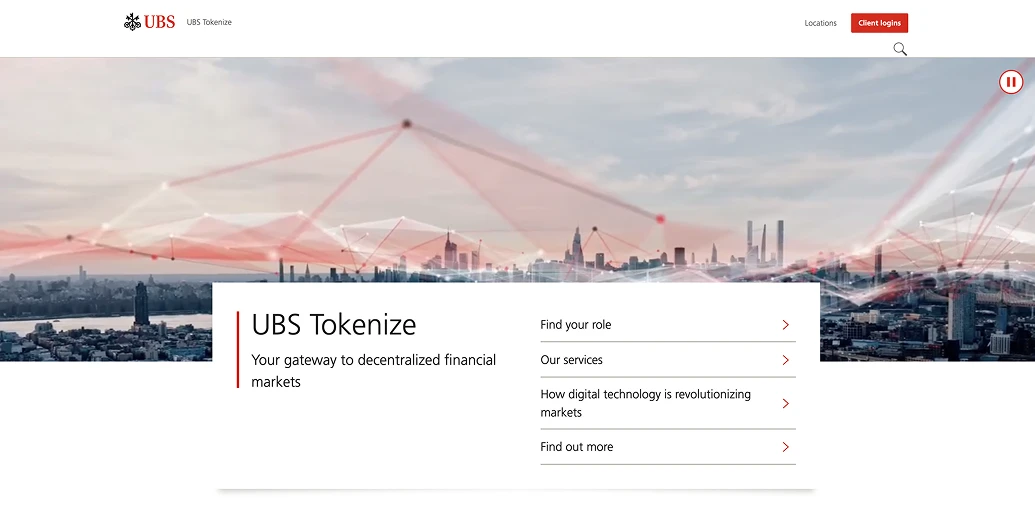- 24H Open Interest$93,713,007,297.51.55%
- 24h Liquidation$91,212,560.30%
- 24h long/short Ratio51.08% / 48.92%
- Fear & Greed Index9
- Bitcoin Price$68,220.10.93%
- Ethereum Price$1,980.471.09%
- Solana Price$86.032.05%
- XRP Price$1.441.04%
- 24H Open Interest$93,713,007,297.51.55%
- 24h Liquidation$91,212,560.30%
- 24h long/short Ratio51.08% / 48.92%
- Fear & Greed Index9
- Bitcoin Price$68,220.10.93%
- Ethereum Price$1,980.471.09%
- Solana Price$86.032.05%
- XRP Price$1.441.04%
UBS Bank Crypto Policy: How to Buy Bitcoin & Digital Assets
Learn how UBS clients can safely buy Bitcoin and other digital assets using licensed exchanges and approved payment methods under regional crypto regulations.
Key Takeaway
- UBS does not let clients buy crypto directly but supports compliant transfers to licensed exchanges that meet FINMA, FCA, and MiCA standards.
- Investors can safely fund exchanges like Kraken or OKX in CHF, EUR, GBP, or USD using SEPA, SWIFT, or local banking rails.
- UBS is expanding its blockchain presence through UBS Tokenize, using tokenised bonds and on-chain settlement to bridge traditional finance and digital assets.
Kraken
Kraken is the most trusted and well regulated perpetuals exchange across the US, Europe, Canada, and other key markets, offering 170+ contracts with deep liquidity and low fees.
Features
Fees
Regulation
Overall Rating
Can You Buy Bitcoin & Crypto with UBS?
UBS clients cannot buy Bitcoin or digital assets directly through their UBS accounts. The bank’s platforms. UBS E-Banking and UBS Mobile Banking, do not feature crypto wallets, spot trading, or token custody.
However, UBS clients can fund regulated exchanges that comply with local anti-money laundering and investor protection standards. Transfers are supported in CHF, EUR, GBP, and USD through SEPA, SWIFT, ACH and domestic payment rails depending on region.
UBS credit and debit cards may not always work for crypto deposits, as the bank screens merchant codes and flags high-risk transactions to unregistered exchanges.
UBS Crypto Policy by Region
UBS applies different crypto policies across jurisdictions, aligning with local regulators such as FINMA, the FCA, MiCA, and the SEC. Clients can fund licensed exchanges where regulations permit, but unregistered platforms or high-risk destinations may face restrictions.
UBS reviews all crypto-related transfers for AML compliance. Payments to peer-to-peer platforms or unregulated exchanges may be declined automatically.
Best Exchanges for UBS Clients
UBS customers can use the licensed exchanges below to buy Bitcoin and other digital assets while staying within the bank’s compliance rules. Each platform supports verified payment rails and regional transfer methods that align with UBS’s crypto policy.
How to Buy Crypto with UBS (Step-by-Step)
1. Open an Account on a Licensed Exchange
Create an account on a regulated exchange that supports UBS transfers, such as Kraken, Swissquote, or OKX.
Complete KYC verification with valid ID and proof of address before depositing funds. This ensures compliance with FINMA, MiCA, or FCA regulations, depending on your location.

2. Initiate a Transfer from UBS
Log into UBS e-banking and send funds through SEPA (EU/EEA), FPS (UK), ACH (USA) or SWIFT (global).
Confirm that the beneficiary name matches the exchange, the reference code is accurate, and the currency is supported (CHF, EUR, GBP, or USD).
Transfers usually settle within minutes via SEPA or FPS, and 1–3 business days with SWIFT or ACH. UBS may review large or cross-border payments under AML checks. Avoid terms like “crypto” or “Bitcoin” in payment notes to prevent unnecessary delays.

3. Select a Cryptocurrency
Once your deposit clears, choose an asset such as Bitcoin (BTC), Ethereum (ETH), Solana (SOL), or stablecoins like USDT or USDC.
UBS clients often start with BTC or ETH for higher liquidity and lower slippage. If trading actively, review spread costs, funding rates, and liquidity depth before placing an order.

4. Complete the Trade
Enter the amount to buy and confirm your order. Use a market order for instant execution or a limit order to target a specific price.
After execution, your crypto appears in your exchange wallet. For longer-term security, transfer holdings to a self-custody wallet such as Ledger or Trezor.
UBS Fees and Transfer Notes
UBS clients can fund licensed exchanges through standard banking rails, with fees and settlement times varying by method and region. The overview below outlines common transfer and withdrawal options.
- SEPA Transfers (EUR): Free or under €1 within the Eurozone. Funds usually reach exchanges like Kraken or Bitpanda within minutes to a few hours.
- SWIFT Transfers (CHF, USD, GBP, EUR): International transfers cost €10–€30 or equivalent, depending on intermediaries. Settlement takes one to three business days.
- Domestic Transfers (CHF): Swiss clients can fund FINMA-licensed exchanges such as Swissquote directly in CHF with same-day settlement and minimal fees.
- Card Payments: UBS debit or credit cards carry around a 3.5–3.75% processing fee where accepted. Transactions are instant but may face regional restrictions.
- Withdrawals: SEPA and Faster Payments are low cost or free. SWIFT withdrawals can include CHF/EUR/GBP 10–35 in intermediary fees. Verified exchange accounts typically support daily withdrawals up to CHF 100,000.
UBS’ Institutional Approach to Crypto and Tokenized Assets
UBS focuses its blockchain strategy on institutional markets through UBS Tokenize, a platform for issuing and settling tokenised bonds, funds, and structured products within regulated frameworks. Under Switzerland’s DLT Act, these instruments gain legal status as on-chain securities with compliant digital settlement.
In December 2022, UBS issued a USD 50 million tokenised fixed-rate note under Swiss and English law. In June 2023, it launched CNH 200 million in digital notes for a third-party issuer, followed by a cross-border repo trade using a natively issued digital bond later that year. These projects show how UBS applies blockchain to capital markets using the same regulatory standards as traditional securities.
UBS restricts retail crypto exposure but continues to advance institutional use cases. Its blockchain work aims to streamline settlement, cut counterparty risk, and expand tokenisation infrastructure. The bank is positioning itself as a regulated link between traditional finance and the digital asset economy.

Conclusion
UBS does not let clients buy crypto directly but allows transfers to licensed exchanges that comply with regional regulations. Investors can fund platforms like Kraken, eToro, or Swissquote using SEPA, SWIFT, or local payment rails.
While UBS remains cautious toward retail crypto, its UBS Tokenize initiative shows growing focus on tokenised assets and blockchain settlement. Clients seeking exposure should use regulated exchanges and verified transfer methods to ensure compliance with UBS policy.
.avif)